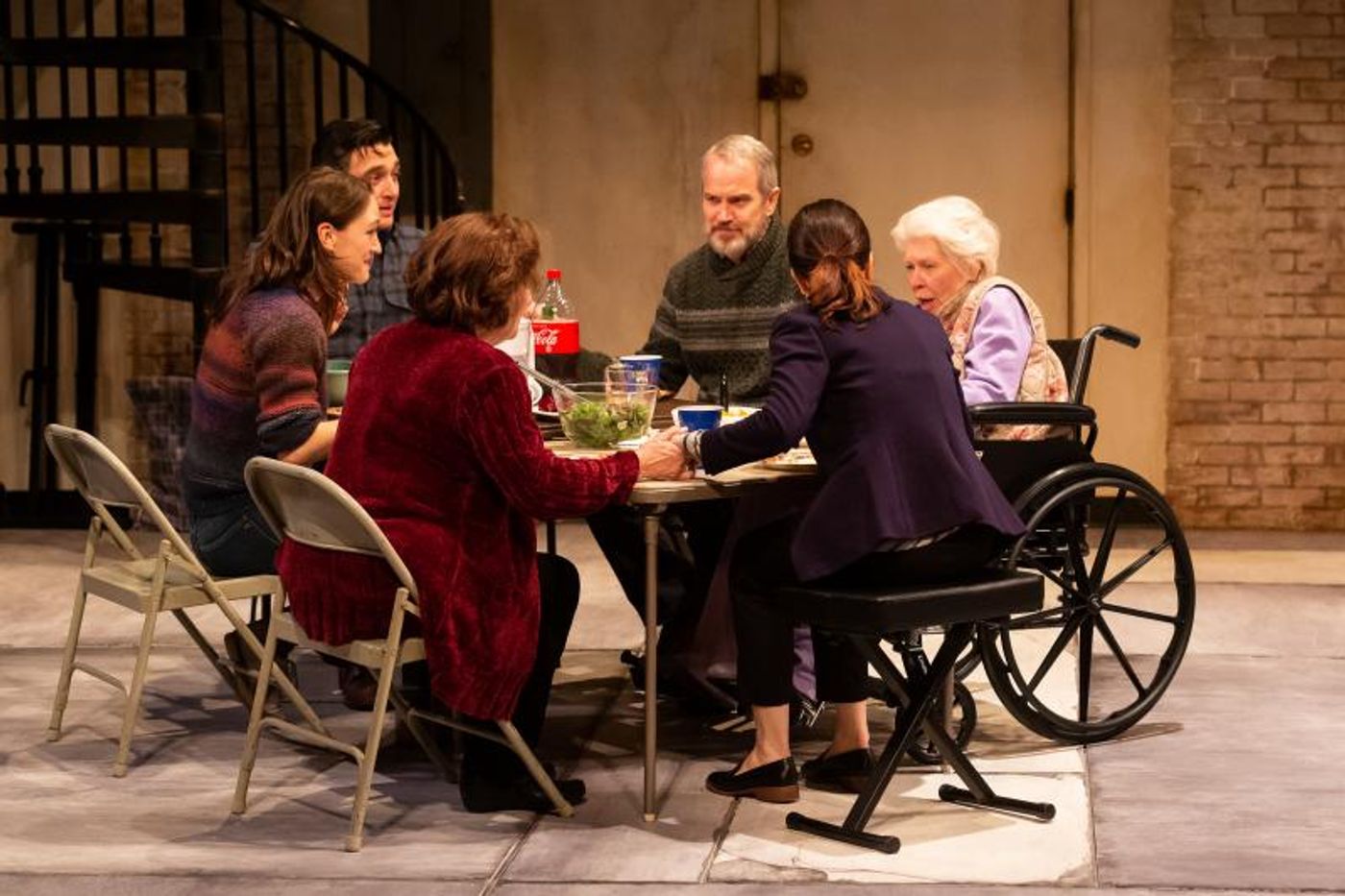Review: THE HUMANS at Alley Theatre

It starts with an apartment. Sagging in an undesirable area of New York City, it's the picture of grittiness and a mash up of stylistic features. Tacky diamond-shaped windowpanes allow for a view of the street (and better cell phone reception.) A metal spiral staircase connects the basement floor to the ground floor. The doors are grime-edged and lock-flanked. You can almost smell the detritus of previous owners. But, look! There is exposed brick! And most people would kill for a two-story apartment in New York. So insists Brigid Blake, the younger daughter of the Blake family. She and her boyfriend have recently moved into this hopeful love nest and she's invited her family over for Thanksgiving. Some consider this holiday to be the most fraught for families, and the Blakes prove that there's something about a turkey and cranberry sauce that conjures familial malice.
At first sight, it seems the family is fairly cozy and comfortably fussy with one another. There is some tension; Brigid (played by Elizabeth Stahlmann) is stressed out from moving and hosting dinner, and is understandably edgy. Amy, (played by Elizabeth Bunch) the older Blake daughter, is putting a good face on, despite struggling with a colitis. Erik and Deidre Blake (played by Steve Key and Sharon Lockwood, respectively) henpeck around their daughters like protective parents. "Momo" Blake (the matriarch, played by Annalee Jefferies) is barely cognizant in her wheelchair, living in a haze of dementia, as the family flits around, tending to her. The only character truly at peace is Richard Saad, Brigid's amiable boyfriend.
As the evening wears on, the family's tensions begin to pop more noticeably, like corn kernels under fire. Revelations come to light and none of them are pleasant. This is a family who suffers from a plethora of problems that many people can relate to in this day and age; chronic health problems, family disappointments, and career disillusionment, to name just a few.
The production is strong and impactful. Directed by Brandon Weinbrenner, the cast snaps and bounces together like any family. It's believable that they're trying to manage the landmines and long-held irritations the best way they know how. They often grasp at humor to keep themselves afloat, and there are many humorous lines throughout the script. Watching the play, I often wished it were staged in the theatre-in-the-round style. THE HUMANS is not the best choice for The Alley Theatre space, especially for patrons sitting at the back of the theater (as I was); lines were lost as actors turned their backs to the audience, and I felt that we missed out on a lot of nuanced facial expressions and interactions between actors. A different staging style would allow the audience to become more entrenched in the story.
THE HUMANS is a story about fear and security. I don't think it's any mistake that the most calm character onstage is also the one person with financial security in the form of a future trust fund. The rest of the characters have no such security, financial or otherwise. Is playwright Stephen Karam commenting on the strife and futility of the common citizen? Certainly the Blake family is grasping at some sense of protection and solidity that really isn't there. THE HUMANS is about dying hopes and aspirations, and how to get by, year by year. Unless you're of the "one percent" set, you'll recognize many of the plights that assault many of the characters. You may even catch a glimpse of yourself in the mix.
THE HUMANS, by Stephen Karam, is directed by Brandon Weinbrenner and runs March 1-24, 2019 in the Hubbard Theatre. Tickets available at alleytheatre.org.
Photos by Lynn Lane.
Reader Reviews

Videos

